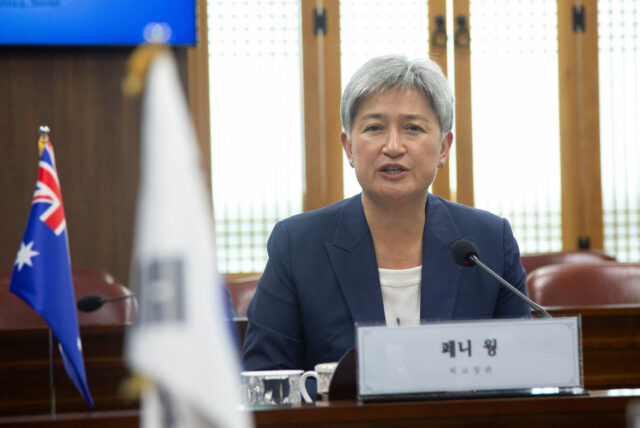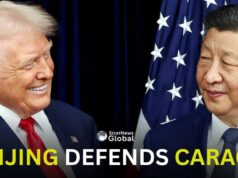Australian Foreign Minister Penny Wong has sharply criticized the recent security agreement between Russia and North Korea, cautioning that it threatens regional stability. Specifically, after touring the nearby Demilitarized Zone (DMZ), Wong voiced serious concerns about the deepening military ties between Moscow and Pyongyang during her visit to Paju, South Korea.
Wong condemns escalation by Russia
“We see Russia behaving in ways which are not conducive to peace but are escalatory,” Wong asserted, pointing to the June pact signed by North Korean leader Kim Jong Un and Russian President Vladimir Putin. Notably, this agreement binds both nations to provide immediate military support if either faces armed aggression.
Russia-North Korea deny arms transfers
Furthermore, Wong didn’t hold back in addressing the alleged arms transfers. She emphatically stated, “The continued transfer of weapons from North Korea to Russia is a flagrant violation of U.N. Security Council resolutions.” This bold declaration echoes worries previously expressed by Washington and its allies regarding the growing military cooperation between the two nations.
Interestingly, despite mounting international concern, both Pyongyang and Moscow staunchly deny any weapons transactions.
Meanwhile, Wong’s visit to South Korea is part of a larger diplomatic initiative. Prior to this, she participated in ASEAN summits in Laos and subsequently joined a Quad foreign ministers meeting in Tokyo with counterparts from the United States, Japan, and India.
Additionally, her itinerary includes crucial talks with South Korean Foreign Minister Cho Tae-yul, focusing on North Korea and strengthening bilateral cooperation for regional peace.
Escalating tensions in the region
This flurry of diplomatic activity undoubtedly highlights the escalating tensions in the region. Consequently, the Australia-South Korea discussions are expected to center on developing strategies to counter the challenges posed by the Russia-North Korea alliance and its potential impact on regional stability.
As global powers continue to navigate these complex geopolitical waters, Wong’s statements underscore Australia’s unwavering dedication to upholding international law and fostering peace in the Asia-Pacific region.
In light of these developments, we may witness intensified diplomatic efforts in the coming weeks to mitigate the effects of the Russia-North Korea pact and preserve regional security.
With inputs from Reuters
Traveller, bibliophile and wordsmith with a yen for international relations. A journalist and budding author of short fiction, life is a daily struggle to uncover the latest breaking story while attempting to be Hemingway in the self-same time. Focussed especially on Europe and West Asia, discussing Brexit, the Iran crisis and all matters related is a passion that endures to this day. Believes firmly that life without the written word is a life best not lived. That’s me, Ashwin Ahmad.





